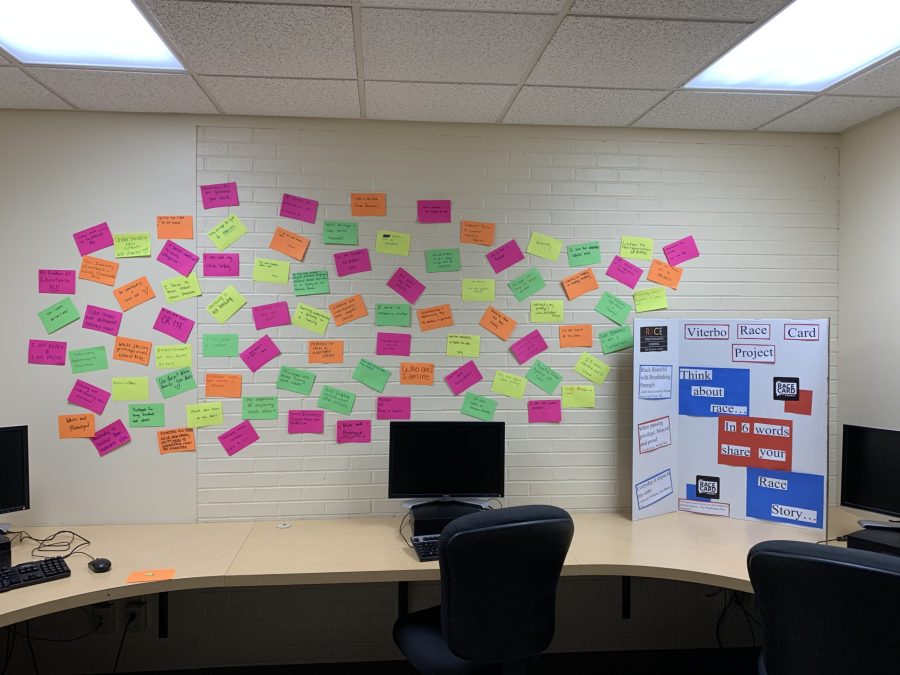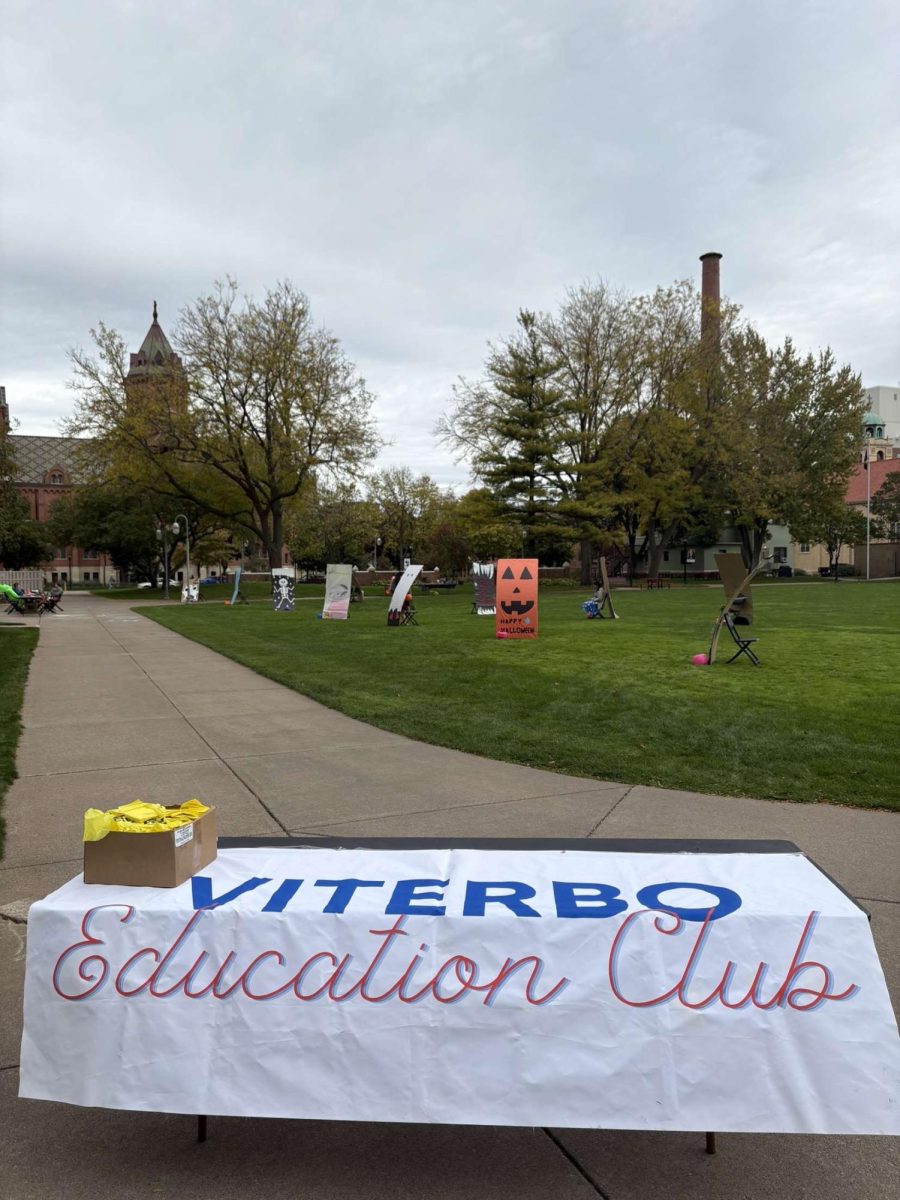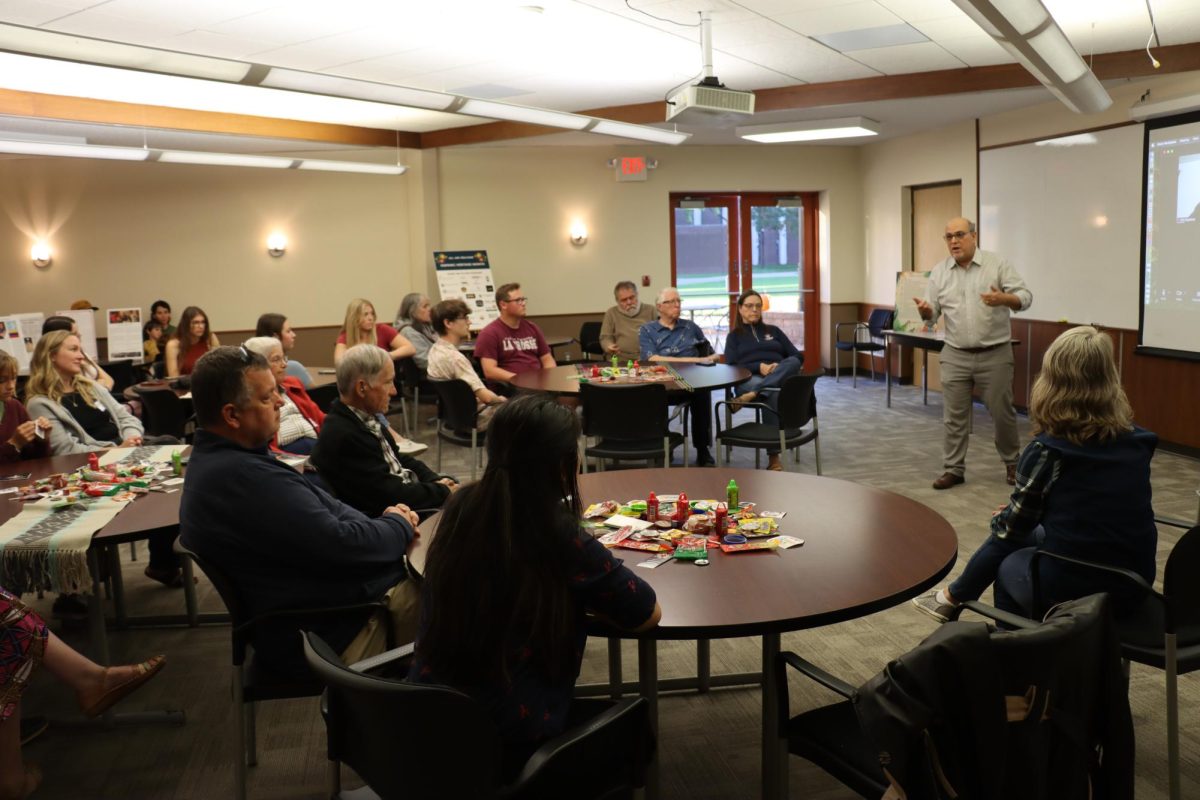On January 18, Viterbo started the spring semester with a celebration of Dr. Martin Luther King Jr.’s birthday: a “Day of Service, Learning, and Celebration.” The day was comprised of a variety of speakers, events, and service opportunities.
Community organizations that felt the impact of the day of celebration included WAFER Food Pantry and the Gateway Area Council of the Boy Scouts of America, among many others. Activities for students and faculty to engage in were broad. The Race Card Project, originally started by Michelle Norris of National Public Radio, asked participants to describe the impact or story of race in their lives in six words, written on a piece of construction paper. Those cards were then posted in a hallway collage for passing viewers to read.
Viterbo Dining Services provided some new dishes for an authentic Cuban lunch at The Caf, inviting students to broaden their flavor palettes while other activities broadened their worldviews. These other functions included “Hear, Here” walking tours of La Crosse. Led by Viterbo faculty and staff members, these ninety-minute events invited participants to listen to recorded stories about racial justice (and injustice) in La Crosse by dialing a number on their cell phones.
The variety of speakers and panels that filled the day was comprised of many unique, intriguing, and sobering stories. The first member of this line-up was a panel of boatlift refugees, who traversed the Atlantic Ocean to find a better life after the 1980 Cuban economic downturn. The panel delivered a striking message about the hardships the “Marielitos” faced as they confronted the stereotypes within and about the Cuban-American community, including racial ones. These were especially prevalent given that most of the refugees were black or mixed race. Young men who ended up at Ft. McCoy, a military base outside of Sparta, Wisconsin, did not fit the white, upper-class figure that Cuban-American communities in states like Florida had established.
This would inevitably manifest itself in the withdrawal of many families who had previously agreed to sponsor Cuban refugees once their demographics were realized. This sobering disconnect and the racialization it supported made it difficult for those seeking opportunity to settle into racial identity in the U.S. Many of those who endured the obstacles, such as panel member Ernesto Rodriguez, who stayed in Wisconsin to learn English, are now advocates for their communities and the stories they carry.
As the Mariel Boatlift panel shared stories of the twentieth century, the Enduring Families Project told those of centuries preceding. An initiative of the La Crosse County Historical Society, the project sponsors historical retellings of the stories of influential people of color in the county. These incredible figures include Elizabeth Burt, who defied norms of her time as an entrepreneur and real estate investor in the mid-1800s. She opened a boarding house on Vine Street in La Crosse to provide beds and food to the young African-American lumber workers: single men who were denied housing by landlords. Reenactments of her story and many others are available on the La Crosse County Historical Society website.
The trio of presentations was capped off at 7:00 p.m. with a message from Rev. Dr. William Barber II, who delivered a blistering critique of current political and societal affairs, calling for policy changes in the judicial and healthcare systems to further the mission of the Civil Rights movement. Seeing the election of Joe Biden and Kamala Harris as a sign of hope for the nation, he heralded his presentation by paraphrasing Dr. Martin Luther King’s final sermon, saying, “Nothing would be more tragic than stopping here and turning back at this point, as we are now moving forward.”
This forward movement was visible across campus on January 18, even as controversy over unauthorized posters added a sour note amidst the resonance of countless stories, old and new. In the voices of speakers and participants alike, one could truly hear “freedom ring.”
Journalist’s Note: Special thanks to Nolan Gundlach, Viterbo University’s Social Justice and Equity webpage, and the La Crosse County Historical Society for their coverage of and information concerning speakers and event content.


